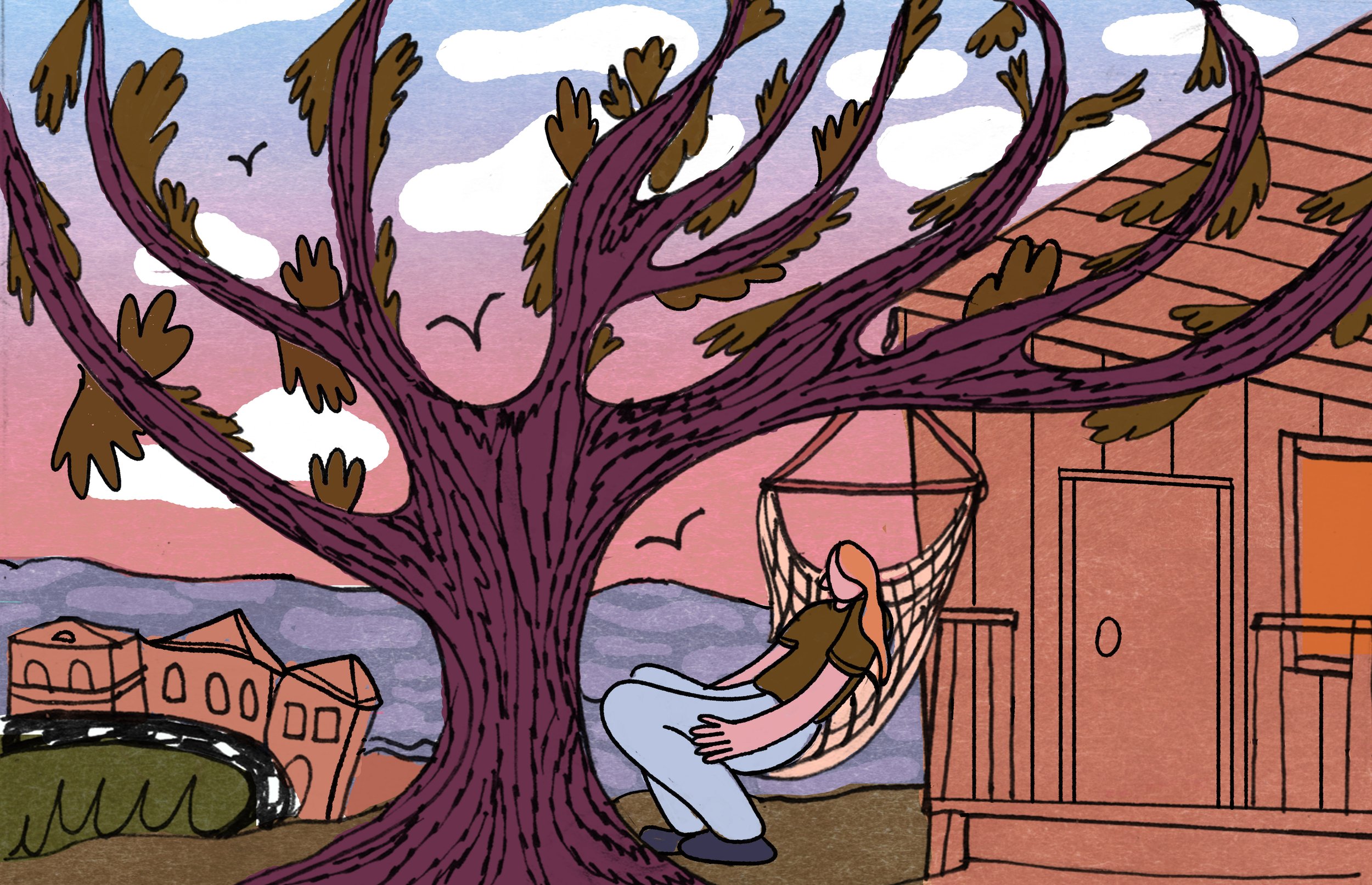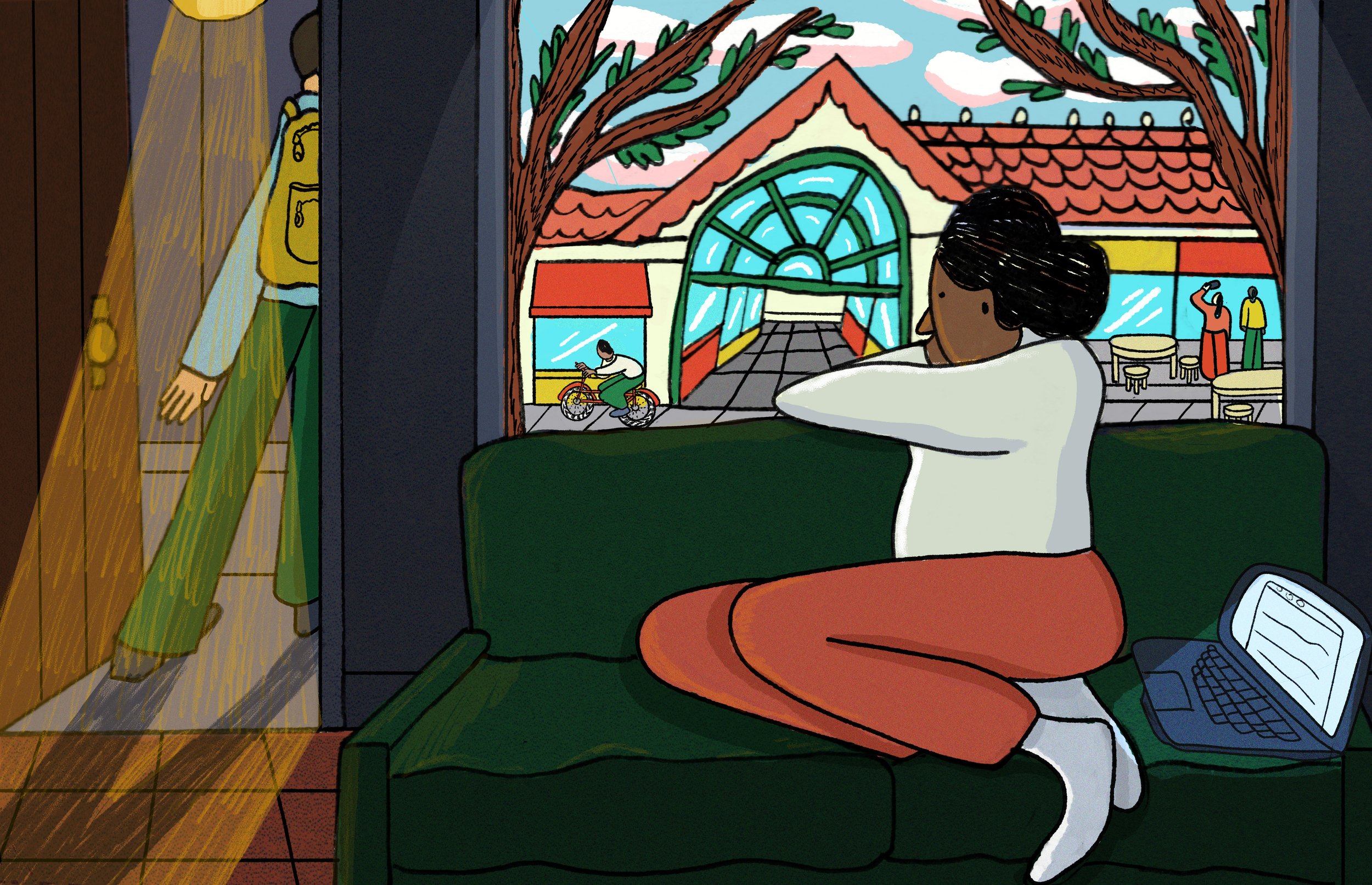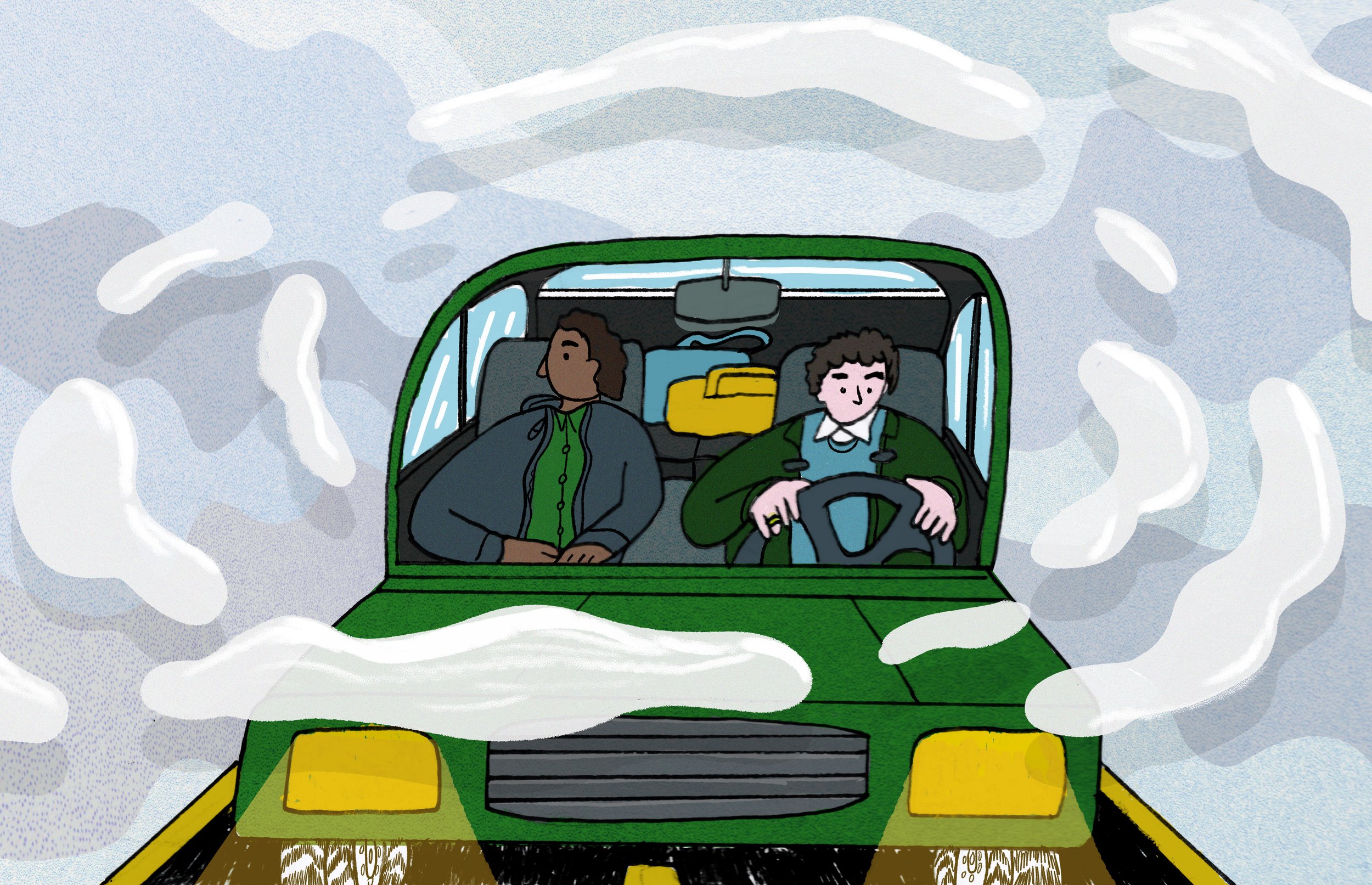7:10 p.m. in Provincetown

Listen to this essay on the Atlas Obscura podcast.
7:10 p.m. in Provincetown is my body in a swing chair facing west. I sit here every evening to watch the sky change. On this thin curl of land slicing between the Atlantic Ocean and the Provincetown Bay, with water on all sides, the setting sun sends unusual concentrations of light onto the land. The air is pink and bright and filled with chirping birds.
In front of me is a giant tree wrapped in black-green ivy. It is a Siberian elm, native to Siberia, Mongolia, and the Gobi Desert—places where nature is harsh. A tough tree. After storms of black dust from over-farmed land in the Midwest pummeled the nation, the USDA planted Siberian elms as shelter belts to protect future prairies from dustbowls. A seedling made its way here to sprout in the sandy, oceanic ends of the earth. It is probably close to 100 years old and its branches, so high and so heavy, cause anxiety throughout the neighborhood during winter storms.
I love this tree. I’ve known it to house raccoons, mice, chipmunks, and all kinds of birds. It transforms this deck into a wonderland lush with life and color at 7:10 p.m.. Birds above me guard their limbs with song. The sky purples behind the low branches, the gently pulsing boughs and twitching leaves obliging me to recognize the breeze.
A car passes and I hear the opening notes of “Mandinka” bend and go flat as the car speeds in the direction of the bay. It is August and Provincetown is still mourning the death of Sinéad O’Connor. I swing in the chair and sing the rest of the song to myself. It’s a noisy stretch of town, and at this time of year, with windows and doors always open, you know what your neighbors are doing. This summer, the house across the street is occupied by a number of pedicab drivers here from Bulgaria on J-1 student visas. At this hour, the European college students are busy with work. They come and go, ringing their bike bells, shouting into cell phones, pedaling drunk tourists around for tips. Once or twice a week, they host big parties that carry on into the night. I was once young and drunk and in Provincetown—the rooms behind me packed with flirting girls gripping beer bottles by their necks, a table pushed to the wall to make the dining room a dance floor—so I forgive them the noise that surges at 1 a.m., lowering the windows in the rooms where my children and I sleep.
On this evening, tiny biting midges get my ankles, and soon I scratch until blood runs. I’ll stay here until it is unbearable. I’ll be out here, starting at 7:10, until I notice how dim the hour has become—fall is coming—and retreat inside. That final night when I am in the kitchen, I hear a rustling outside and see a raccoon has climbed down from the tree and is sitting on the deck, staring right at me through the glass door. Scared, I rap the pane with my knuckles. “Go away?” I say, but she won’t.
She knows what the sky means, and dares me to defy her position under the Siberian elm. Summer’s over, human, her unwavering glare says. This is our town now.
About the Author
Alden Jones is the author of the memoirs The Blind Masseuse and The Wanting Was a Wilderness and the story collection Unaccompanied Minors. She is the editor of the forthcoming anthology Edge of the World: An Anthology of Queer Travel writing, coming spring 2025 from Blair. Her short works of fiction and nonfiction have appeared in The Boston Globe, The Rumpus, BOMB Magazine, New York Magazine, The Cut, Agni, Post Road, Prairie Schooner, Iowa Review, and Best American Travel Writing. She is Writer-in-Residence at Emerson and a core faculty member of the Newport MFA program at Salve Regina University.
Illustration by Jane Demarest.
Edited by Aube Rey Lescure.











